#koream
Video
undefined
tumblr
잊어야 한다면 | 김정미
8 notes
·
View notes
Text
🔥'Phantom' (2023) - Upcoming Korean Historical Spy Action Thriller Film 😍
📑In 1933, during the Japanese colonization of Korea, five suspects who are suspected of being a spy "Phantom" of the anti-Japanese organization in Gyeongseong, are locked up in a secluded hotel to be interrogated, fighting each other's suspicions and boundaries to escape safely.
👉 Set To Release On January 18, 2023 In Korean Theaters !!
Star Cast 🥵🤩

Follow Us:- https://linktr.ee/webhubupdate
0 notes
Text
Kishiar being Kishiar (novel spoilers!!!)


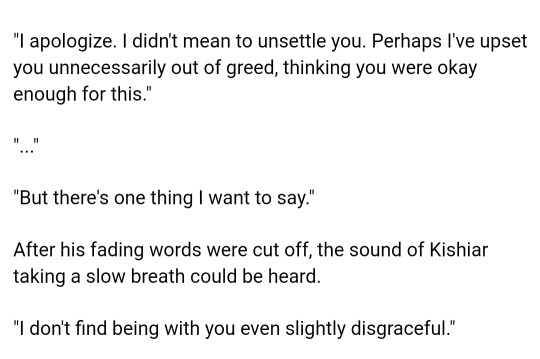


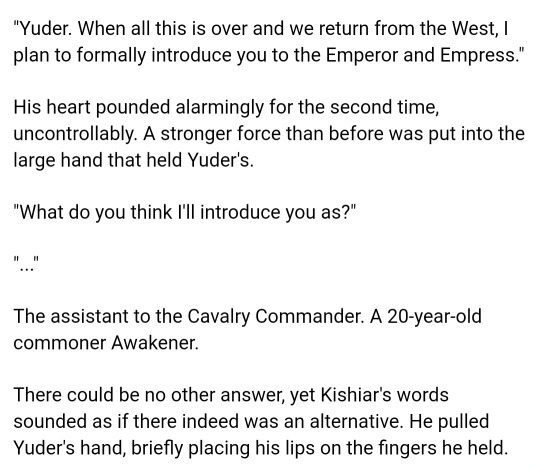


HOW CAN A MAN LIKE THIS EXIST?!?! AAAHHHHH. (Read turning if you haven't yet, join the discord server if you haven't yet^-^)
#turning by kuyu#turning#turning bl#turning novel#yuder aile#kishiar la orr#Nathan Zuckerman#im mentally unstable about them#KishiYu#kishiyu#koream novel#korean bl#yaoi bl#yaoi novel
79 notes
·
View notes
Text
BL Korean - Why Ru re-make!
Why Ru? COMING this 24 August
Really confused about how they will make this and be less smutty but it'll be interesting!
instagram
No international platform yet.
@absolutebl @bengiyo @heretherebedork @iguessitsjustme @lurkingshan @respectthepetty @waitmyturtles @wen-kexing-apologist
88 notes
·
View notes
Text




Source
33 notes
·
View notes
Text
i love languages
#and im so glad telugu is my mother tongue because learning the grammar and alphabet opens up so many doors#the grammar is so similar to koream grammar if not the same#li talks
14 notes
·
View notes
Text

***** **** *** ****
6 notes
·
View notes
Text
Angry Mom OST

Angry Mom - Lee Joo Han & Ki Min Hee
Best Home - Lee Joo Han
Chop Chop Chop - Lee Joo Han
Girl Gone Band - Lee Joo Han
Gypsy Swing - Lee Joo Han
Happy Magic - Lee Hyun Woo
Happy Magic - Lee Joo Han
I Love You, I’m Sorry - ALI
Kimchee Roulette - Lee Joo Han
New Orleans Bass - Lee Joo Han
Potato Taxi - Lee Joo Han
Sunny Side Up - Ashbun
Super Bibim Googsu - Lee Joo Han
Teleport - Aberdeen Orange & Jasmine
Watchout Panther - Lee Joo Han
#angry mom ost#angry mom kdrama#kdrama angry mom#kdrama blog#kdrama addiction#kdrama addict#kdrama stuff#kdrama daily#kdrama headers#kdrama list#kdrama edit#kdrama edits#kdrama ost#kdrama packs#kdrama posting#kdrama vlog#kdrama#koream drama#korean tv shows#korean tv#korean#korea#south korea
6 notes
·
View notes
Text
i need someone to hook me up w hyunnie's hair stylist or wtvr bcuz i *need* his bangs
0 notes
Text
Ramen Kimchi Noodles Halal
Kimchi ramen daebak noodles is a popular Korean dish that combines spicy kimchi with ramen noodles. "Daebak" is a Korean word that means "awesome" or "great", and is often used to describe something that is impressive or exciting.
Instagram account: @daebakuae
link: https://www.instagram.com/daebakuae/
retail: www.familyk.ae
wholesale: https://dubaitradeas.com/
To make kimchi ramen daebak noodles, you will need instant ramen noodles, kimchi (a Korean fermented vegetable dish), and a few other ingredients such as garlic, scallions, and sesame oil. Here is a simple recipe to follow:
Ingredients:
2 packs of instant ramen noodles
1 cup of chopped kimchi
2 cloves of minced garlic
2 sliced scallions
1 tablespoon of sesame oil
1 tablespoon of gochujang (Korean chili paste)
1 tablespoon of soy sauce
4 cups of water
Instructions:
In a large pot, bring 4 cups of water to a boil.
Add the ramen noodles and cook for 3 minutes, stirring occasionally.
Drain the noodles and set them aside.
In the same pot, add the garlic, scallions, and sesame oil, and sauté for 1 minute.
Add the kimchi, gochujang, and soy sauce, and cook for another 2-3 minutes.
Add the cooked ramen noodles to the pot, and toss to combine with the kimchi mixture.
Serve hot and enjoy!
This dish is perfect for a quick and easy lunch or dinner, and it's also a great way to experience the spicy and tangy flavors of Korean cuisine.
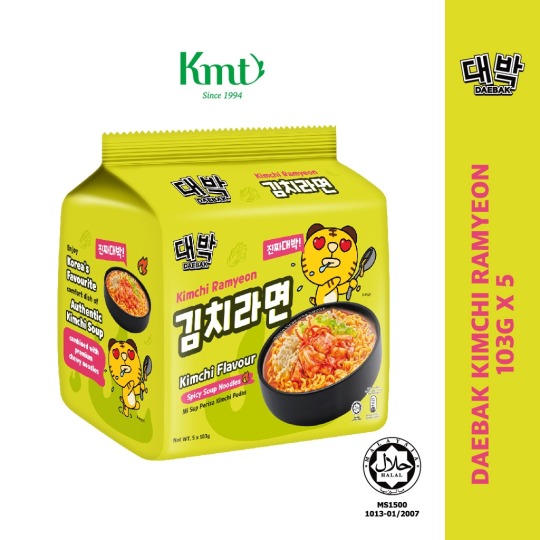
#ramen#halal#koream food#noodles#noodle#daebak ramen#halal daebak#samyang noodle#2x spicy#3x spicy#4x spicy ramen
0 notes
Text
Braised Pig's Trotter's (Jokbal)
Braised pig’s trotters, also known as jokbal in Korean cuisine, is a popular and traditional dish that features pork trotters cooked in a flavorful mixture of soy sauce, rice wine, brown sugar, and various aromatics. The dish is slow-cooked until the meat is fall-off-the-bone tender and infused with rich flavors, making it a comforting and hearty meal that is often enjoyed with rice, vegetables,…

View On WordPress
0 notes
Text
An update on Song of Hanchae: I bought the Korean drama Moon Lovers from Walmart online, so it should be here in three days. I also decided to change the name from Song of Hanchae to The Hanchae Bride because I was suddenly reminded of the novel IThe Borgia Bride by Jeanne Kalogridis, which I wasn't able to finish reading but now I'm interested in reading again.
The reason I changed Song of Hanchae to The Hanchae Bride is because I started the web novel project revolving around my alter ego Wilhelmina Riverwell. I made her trans as well, since I am trans.
The Hanchae Bride won't be the only story I focus on. I plan to focus on more than one series inspired by many Asian dramas, with my stories having a black trans and cis lead.
By the way, I'm deciding to write at least three love interests for Wilhelmina Riverwell as a harem, as I promised to have the female lead be with more than one male lead. And one of the male leads for The Hanchae Bride, Min Do, is modeled by Lee Joon Gi. I haven't figured out which other two male leads to be modeled after yet. This video I'm sharing with you was enough for me to make one of my crushes, Joon Gi, as part of my journey as a storyteller. I often wonder if I met him before, as I'm drawn to him always.
youtube
#lee joon gi#lee jun ki#writing#koream fantasy#fantasy drama#korean fantasy drama#korean drama#kdrama ambw#kdrama serial#kdrama#trans#trans female lead#fiction#writing kdrama#Youtube
0 notes
Text
His pronunciation is luchi, not lucy lmfao ah this koream accent 😂
2 notes
·
View notes
Note
Tete
Please anon stop with this cringy ass nick name 💀💀💀
Yeah tete baby who don't know anything right ? That man is too deep in army twt that he even knows fanarts which don't even have many likes. It's one thing fans being rabid dogs but it's different providing fhm exactly what they want and not developing a spine to defend the girl he loves. Forget innocent him not knowing what shippers think but don't he know what news outlets especially top koream news channels saying about him and his relationship. Give up already, he knows exactly what he's doing and will keep on doing it.

14 notes
·
View notes
Photo
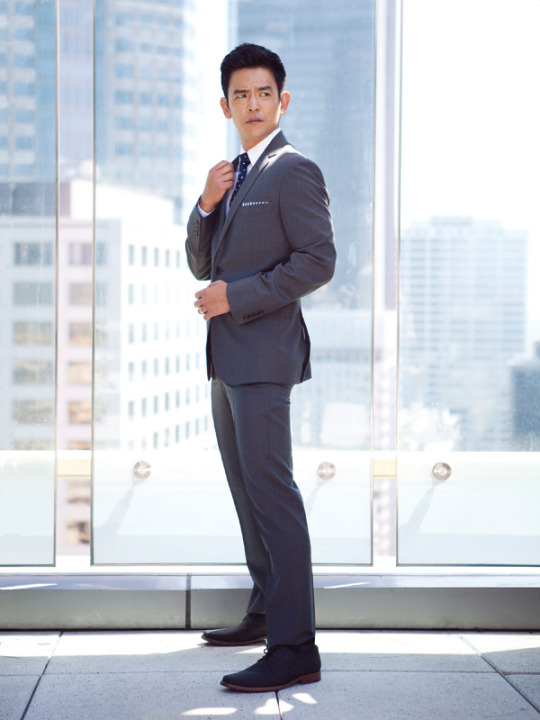
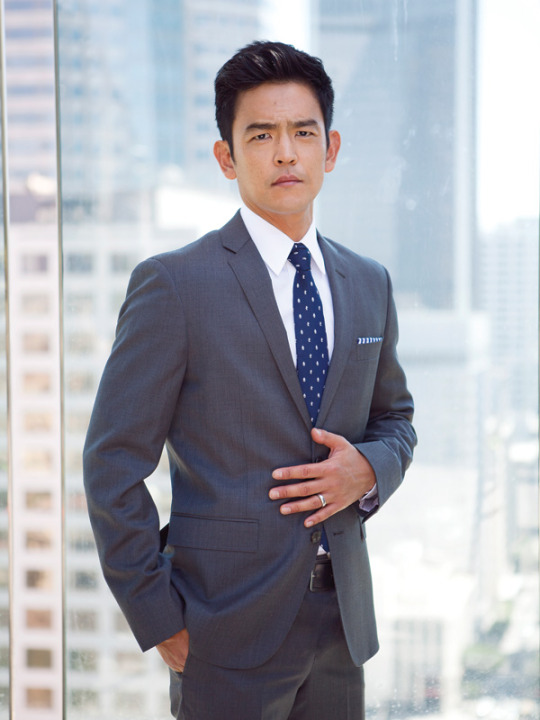


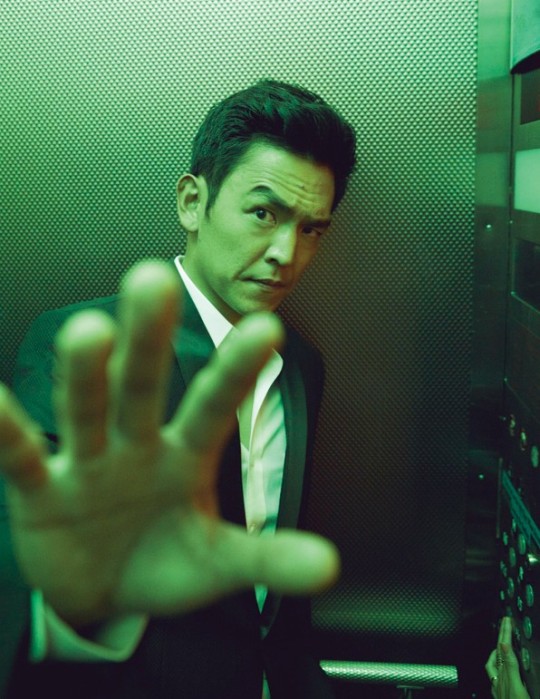

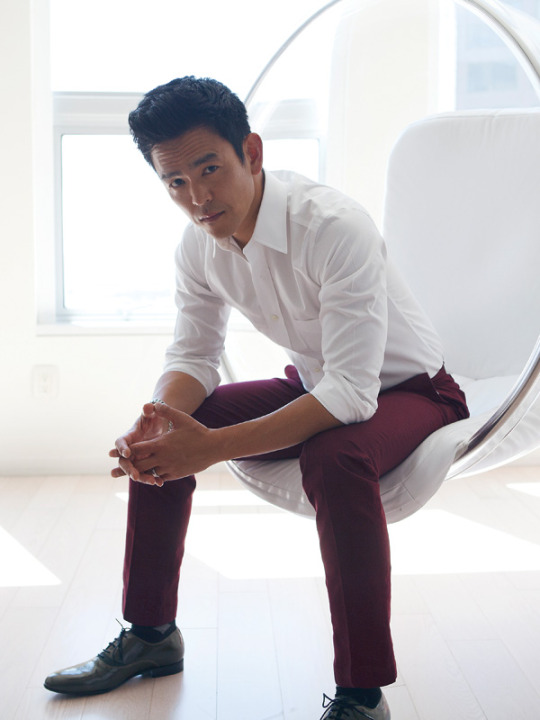
2014 KoreAm magazine photoshoot and cover story of John Cho.
John Cho Delights in Rom-Com Role in ABC’s ‘Selfie’
October 28, 2014
In the new ABC rom-com Selfie, John Cho goes where no Asian American actor has gone before.
story by ADA TSENG
photography by JACK BLIZZARD
John Cho can’t stop raving about how he got to ride a horse for his new TV show Selfie.
“About a month ago, [creator] Emily [Kapnek] came to me and said, ‘We’re writing a storyline where you’re riding a horse. Can you ride a horse?’” remembers Cho. “And I said, ‘I can’t, but you have to keep that in. I’ll learn.’”
Turns out he only needed one lesson to gallantly ride a horse for a scene that’s a play on the familiar knight-inshining- armor trope.
“Apparently, I’m a natural,” he jokes. Why hasn’t anyone asked him to ride a horse before? “That’s a good question!” he says. “Now I get to put it on the resume as a special skill.”
Cho plays Henry to Karen Gillan’s Eliza in ABC’s new half-hour comedy Selfie, which premiered on September 30. The show borrows the premise of the 1964 musical My Fair Lady, based on the 1916 play Pygmalion, transplanting the characters from early-1900s’ status-obsessed England to 2014’s Internet-obsessed America. Selfie’s pilot introduces Eliza Dooley (a nod to Eliza Doolittle) as a social media star with millions of virtual friends but no actual friends. One day, after she is publicly humiliated by a boyfriend whom she didn’t realize was married, she sees a presentation by her co-worker Henry Higgs (shortened from Higgins), who is a talented marketing expert at their pharmaceutical company. He also happens to hate everything about the wired millennial generation. Convinced she needs to be rebranded, Eliza begs Henry to help her change her image.
Though the Henry character in the film, played by Rex Harrison, looks down on Audrey Hepburn’s Eliza, the Selfie team wanted to make sure their modern Henry was influenced by Eliza just as much as Eliza is “transformed” by him. Though Henry confidently takes on the challenge to make her into a less self-absorbed person, in the process, she also teaches him that all work and no play is no way to live a fulfilling life. (“What’s more irresistible than opposites being thrown together?” says Cho.) Their modern take is less about external behaviors — manners and proper elocution — and more about internal values: learning to empathize and live in the present, instead of being constantly glued to one’s smart phone.
Perhaps because My Fair Lady and Pygmalion take place in England, the character of Henry was originally envisioned as an older English man. However, when the casting directors were having challenges finding the right person for the role, Cho’s name was suggested. (“We looked at tons of different actors, and really, once we kind of opened our minds and said let’s get off of what we think Henry is supposed to be and just talk about who he is — we just need a brilliant actor — and John’s name came up,” Kapnek told The Toronto Star.)
And it turns out there was no reason the 21st-century Henry couldn’t be Korean American.
“John and I actually met at a table read for the first episode of Selfie,” remembers Gillan, well-known to audiences for her roles in Doctor Who and Guardians of the Galaxy. “So in essence, we met in character. As soon as John began to deliver Henry’s lines, everything came to life. He breathed life into the character, and through that, into my character, too. It was really exciting.”
But back to the horse. “The character of Henry has been taking horseriding lessons surreptitiously for three years on the chance that he’d be invited up to his boss’s ranch,” explains Cho. “And he’s frustrated because he’s trying to impress his boss, but he keeps getting thwarted and is unable to show off his equestrian prowess.” He pauses. “But the point of the story is that John Cho got to ride a horse!” He laughs. “In fact, I got a little too obsessed with the horse. I was probably not a good actor that day because I was too excited about the horse.”
For Cho, it was more than the fact that riding a horse was fun. As an Asian American actor in Hollywood — even a successful one whose almost twodecades-long career has spanned indie films (Shopping for Fangs, Better Luck Tomorrow), mainstream comedies (Harold & Kumar, American Pie) and sci-fi classics (Star Trek) — Cho says he doesn’t often get to participate in stories that involve what he calls “American mythology.” He feels that Asian Americans mostly get shut out of Hollywood stories depicting this country’s history, unless they’re Chinese railroad workers or launderers. He racks his brain, trying to think if he’s ever seen an Asian American guy ride a horse on TV before. Though he loves Westerns, he knows it’s unlikely he’d be cast in one.
But never say never. How likely was it that he would become this generation’s Henry Higgins?
At this year’s Television Critics Association Summer Press Tour, as he was promoting the show, Cho called his casting as an Asian American male lead in a romantic comedy TV series “revolutionary,” a word he regrets using in retrospect. It was an offhand comment, but the media ran with it.
He’d rather point people’s attention to the fact that, during the panel, there were many questions about Scottish co-star Gillan having to speak in an American accent, but no questions about them as an interracial couple.
He was surprised, but relieved. Normally, he’d not only be prepared to talk about his race, but also have a strategy to steer away from it, so that his Asian-ness didn’t dominate the conversation, especially for a project like Selfie, which has a multicultural cast, but doesn’t harp on the characters’ ethnic backgrounds. There were only two Asian references in the pilot. The first was about how Henry’s eccentric boss Sam (played by Homeland’s David Harewood) thought it was OK to kiss Henry on the mouth as a greeting because he read an article on the web called “Kissing Koreans: Greenlight!” — which, because it was actually more of a joke about the boss’ inappropriate touching and the fact that the Internet is full of lies, could have easily been a “Kissing Europeans: Greenlight!” joke left over from when they envisioned Henry as British. The second, which eventually got cut and transplanted into a future script, had Henry insisting his friendship with Eliza is completely platonic and joking that a red-headed Korean would definitely make an ugly baby.
Selfie isn’t trying to comment on racial issues in America; it’s aiming to be a clever workplace comedy with a “will-they-or-won’t-they?” couple at the center of the hijinks. And from the outset, it seems like ABC is banking on their new show by Kapnek, who recently helmed the ABC comedy Suburgatory. Selfie advertisements seem to be everywhere, from eye-catching billboards along major freeways to the cover of the fall TV insert of Los Angeles magazine, to the top of the popular IMDB.com movie database homepage. It also says a great deal that Selfie was given the Tuesday 8 p.m. time slot, the only new ABC show that’s been tasked with leading the day’s prime-time block of programming.
In another marketing move, ABC released the pilot online over a month early to get the buzz going, a strategy that Cho thinks is related to the public’s initial ambivalence over the show’s title. “The word ‘selfie’ has so much baggage,” says Cho. “It’s provocative, which is why I liked it, but the word implies narcissism, so there was a disinclination to like the show. People had to be convinced it was a real show.”
But Cho doesn’t seem worried. “I think the work speaks for itself.”
The Selfie crew is gathered at the Warner Bros. lot in Burbank on a Wednesday morning in September, using Cho and Gillan stand-ins to prepare for the first shot.
In the maze of different sets — the pharmaceutical offices, cubicles, hallway, bathroom and apartment spaces — the production team watching the monitors can’t necessarily see John Cho, but they can hear him. He’s belting out a song in the background before he gets ready to shoot his scene. Cho’s known for being goofy on set. While shooting the pilot, he had Gillan laughing whenever he pulled out his phone and blasted Cyndi Lauper’s “Girls Just Wanna Have Fun.”
Gillan and Cho’s onscreen chemistry is apparent, therefore the tension that arises from keeping their characters apart is irresistible. In the episode they’re shooting, Henry has started dating a very proper, clean-cut “gentlewoman,” as he calls her (a female version of himself played by actress Allison Miller), and Eliza, despite the fact that she has a boy toy of her own, seems to be a little jealous. She’s hurt that Henry didn’t tell her he was dating somebody. In his defense, it just happened 10 minutes ago, he says. But I tell you every single detail about my love life, she argues. A habit I’m desperately trying to break you of, he banters back.
There are certain images in television and movies that we see so often that they border on cliché — girl likes boy, boy likes girl, but they can’t admit it, so they bicker instead and somehow get stuck in the glistening rain together — yet minority actors who are usually relegated to supporting roles don’t often get to play these arcs.
“It’s funny,” says Cho. “I’ve had to do romantic scenes in my career” — he’s been paired with Paula Garces in the Harold & Kumar trilogy and Gabrielle Union in the 2009 ABC science-fiction drama FlashForward —“but by far, they’re the minority of the things that I do. But in life and in movies, I’ve seen it so many times. [Romantic scenes] are in almost everything! So I had a sense of how things should go, what the beats should be, and that’s not informed by what I’ve done as an actor, but what I’ve seen as a viewer. It was new and unfamiliar, but familiar at the same time.”
Back in 2009, in interviews promoting the release of Harold & Kumar Escape from Guantanamo Bay, Cho often talked about the fact that he thinks about the Asian American community with every role he chooses.
Five years later, does this pressure still weigh on him? “When I was first starting out, it was a lot of rejecting stuff,” he says. “Saying ‘I’m not going to do that sh-t, these ching-chongy roles, even though I had no place to be turning things down. In the middle part of my career, I became more aware that people were aware of me — Asian Americans in particular. And sometimes it almost felt like I was bullied, how burdened I was by what Asian Americans might think of me.”
Though Asian America may feel like we have a stake in his career, for better or worse, Cho says it sometimes feels like we have a disproportionate amount of influence on him. With the diverse fan base of both the Harold & Kumar and Star Trek franchises, he finds that the majority of fans that come up to him on the streets are not Asian.
“I’m trying to come at it from a more authentic place,” he says. “Selfie would be an example of me reading the script and thinking, ‘I don’t think I’ve seen an Asian guy in this particular kind of role.’ It personally touched a nerve, and I took delight in it.”
Another unique aspect of Selfie that Cho enjoys is the language, which he calls “a mix of old Hollywood screwball dialogue, meets arcane English, meets hashtag jargon.” In addition to snappy rhythms, rhymes and couplets mixed into the characters’ repartee, Eliza is constantly talking in a mix of LOLs, Internet lingo and pop culture references. (“At the beginning I made a decision Eliza would talk like she’s on a lot of coffee,” says Gillan. “Now I’m regretting that.”) Whereas Henry is more proper, referring to dating as “courting” and feeling the need to airquote Eliza’s suggestion that he needs to “get some,” emphasizing his distaste for casually lewd slang that comes out of his mouth so unnaturally.
“I’ve never had this kind of dialogue in my life,” says Cho, of this elevated language that’s often the domain of theater. “Henry sometimes feels like he was educated abroad, like at a Swiss boarding school.”
Though Cho may be less uptight than his character, he seems to share a similar crankiness about social media.
“Every minute I spend on Twitter feels like a waste of time emotionally,” he says, balking at the idea that increasing one’s Klout score in this day and age may actually be a smart career move. After all, even though Cho, and therefore his character, doesn’t look a day over 30, in real life, one could argue he, at 42, is at least one technological generation over the millennials who talk in OMGs while updating their Instagrams with overfiltered selfies.
The married father of two harkens back to the good ol’ days, when instead of judging quality through Facebook likes and retweets, good criticism was valued “in the way a poet can give voice to how much you love a woman.” He refers to Jonathan Franzen’s condemnation of Facebook as a private hall of flattering mirrors. He brings up Noam Chomsky’s media documentary Manufacturing Consent to explain how “it’s impossible to tell the truth in a two-minute news story, so you start at failure and end at worse failure. And I felt like Twitter was an extreme example of this.”
However, his involvement with Selfie has softened his stance against social media.
“I see young people who are very self-expressive in a way that I couldn’t have even grasped at that age,” says Cho. “I saw an Ariana Grande tweet, where she had typed out some emotions on her iPhone after her grandfather passed away, taken a picture of it, and tweeted it out to her followers. It was so fresh and emotional, a way of sharing a Polaroid of her state at that time. So maybe Twitter is proving me wrong.” He hesitates. “But I don’t know. I can’t go there. I’m a private person. Even interviews are an exercise in avoiding revealing anything about myself that’s real, and I dislike that these are the new rules of fame, that you must reveal more than you wish.”
So, now that he’s tweeting more, how has he reconciled his aversion to social media? “I haven’t,” he claims, though it seems like he’s found a strategy that works for him. Cho’s Twitter is filled with funny photos that seem to give fans a glimpse into his personal life, but if you look closer, he’s found a way to make jokes while still keeping his social media existence predominantly work-related. His profile photo of him in a beard and twirly mustache is from a Selfie promo that’s yet to air. A photo where he jokes that he’s styling K-pop hair is a wig he’s wearing on the set before it was styled properly. And there’s Gillan’s Ice Bucket Challenge video, where he makes a cameo as an official ice thrower dressed in a Red Power Ranger outfit—“Very important role,” jokes Gillan, “his best one to date” — and further highlights their onscreen appeal to the masses.
And, of course, there’s a Twitpic of Willow, the white steed.
“[John] actually was great with the horse,” Gillan confirms reluctantly. “I audibly gasped when I first saw him riding towards me. It was a sight to behold. But don’t tell him I said that.”
[x] [x]
#john cho#selfie abc#asian men#eastasiansonwesternscreen#interview#article#asian menswear#asian representation#representation matters#asian american#korean american#long post#romcom#romance#romantic comedy#photo#flawlessgentlemen
7 notes
·
View notes
Text
HNHNHhGSfhGSfhasgf
this thing is taking too much computing power in my head i need it OUT!!! OUT!!!!!!
anyways I am formally reintroducing my ""project"" so I can redirect people with ease.
Horn and Tail (working title)
Aliases: Resentment Story, Jakho/not jakho
Related projects: Bad Murder Mystery
the Pilot: smug, she/her, 20, bi KoreAm
inspirations: Ace Attorney, Kdramas, the Count of Monte Cristo
status: worldbuilding and plotting concurrently
Blurb:
Yves and Yannick Leyulais embark on a long, methodical trek of vengeance against the noble family of a man sometimes called Jacques-Dorian Montbleu.
Unbeknownst to them, the peculiar Finder that they are relying on, Joie Delaguerre, has her own intentions—and so do the various allies and enemies that they gather upon their return to the land sometimes called Yulterre.
One of them is Heukganggom Baram, whose personal investigation of the Jacques- Montbleu (Cheongsanjak) was shut down by their second son’s public humiliation of her and her family.
Meanwhile, the members of the Cheongsanjak family internally contend with tensions of inheritance, marriage, and political aspirations, which explode when their first son is nearly assassinated by justice activists.
Straight from my Notes
Central themes:
Family (blood and made)
Truth
Justice (revenge, punitive, restorative, forgiveness)
Secondary themes
Trauma
Belonging/exclusion (xenophobia, “home,” etc)
And the social construction of those categories
Aka ethnicity and nationalism and gender
Searching for family, truth, Justice
And how imperialism/colonialism/empire affects how things work
Family, truth (scientific vs traditional), justice, belonging/exclusion, social categories
How imperialism/nationalism developed over time
Tertiary themes
What love means in the context of family, social obligation, and truth/lies
How we define our self-identities in the context of others
can you exist without those around you? Who are you if not for those around you?
What do the horn and tails represent?
They show how cultures construct meaning and symbolism
As extra protrusions, they physically mirror how the characters feel extra deeply and humanly
They represent dignity and humanity, and their treatment/abuse can stand-in for other forms of trauma or humiliation
They physically show the branching of inheritance/family
They rep the genetic diversity of irl humans
Main characters(?):
Heukganggom
Baram
Ppalgangil
Yukyang
Yangseo
Vu 백남무/Baeknammu (Ly) Hongnamri
Xuân (Khanh)
Cheongsanjak
Doryeong
Onjo
Side characters
Cheongsanjak
Heungjin (dead)
Noljin
Widow
Gramps
And Gram
Heukganggom
Bari
Ppalgangil
Yonggi (dead)
Cheonha (dead)
Bukho 북호
Daeran
Nam
????
Baram’s inside friend
Summary (long):
Eight moments will culminate in desperation with horn and tail.
The first is the adoption of a northern waif by a grieving father.
The second is the little-regarded corruption trial of architect, Hongnamri Geondeok, and his cryptic death.
The third is the framing of the diplomat Cheongsanjak Heungjin for the murder of Cheongsanjak Noljin, and the exposing of Ppalgangil Yonggi.
The fourth is the Great Metounais Fire, which killed many.
The sixth is the murder of Deodat Delamer.
The seventh is the trial of Heukganggom Baram.
And the eighth is the death of Sa Leyulais, mired in debt and sickness.
Yves Leyulais discovers their father’s diary, pointing a finger into the heart of the Cheongsanjak-ssi.
Yannick Leyulais is delivered by a letter sent too late.
Joie Delaguerre is harassed by the children of the woman who disappeared her father.
Heukganggom Baram defends a laborer accused of a murder on cursed ground eyed by a seaslicker.
Cheongsanjak Onjo hires a man with no roots to protect him from everything but his own family.
Cheongsanjak Doryeong’s devotion burns like a golden branch.
2 notes
·
View notes